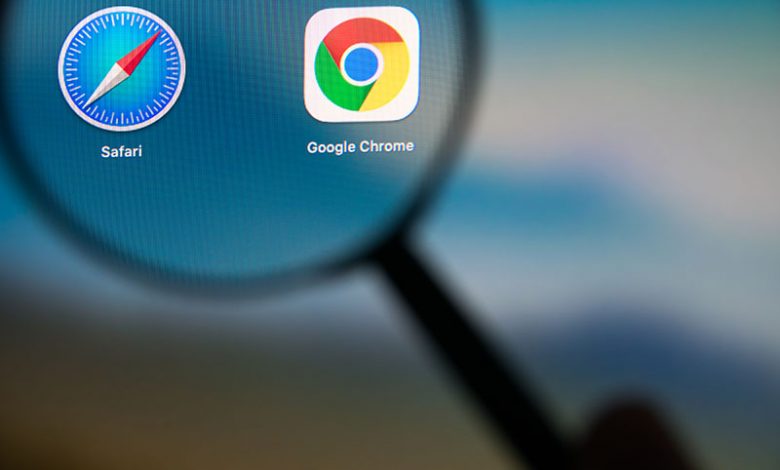
For many Mac users, browsing the internet often entails using Google Chrome, a popular browser widely recognized for its high performance and energy efficiency. Despite this, many Apple device users are finding valuable reasons to opt for Safari, Apple's native web browser, over Chrome.
Interestingly, Mac's high market share of approximately 20% does not translate to a similar percentage for Safari usage. While Windows leads the market, Safari lingers behind, capturing just 8.9% of the browsing market. This divergence indicates that many Mac users use different browsers, notably Google Chrome, instead of Safari. However, the growing population of Safari proponents and the inherent benefits Safari offers to Apple device users can potentially persuade this demographic to reconsider.
Table of Contents
Preference for Safari over Chrome
Despite the popularity of Chrome, Safari offers an assortment of compelling facets that should make it the go-to browser for Mac users. Not only is Safari more energy-efficient and privacy-oriented, but it also leverages the Apple ecosystem's advantages. For Apple device users, the benefits of sticking to Safari over Google Chrome surpass the familiarity of Chrome's interface. The following reasons highlight the unique aspects of Safari that should incite Mac users to consider transitioning from Chrome to Apple's native Browser, thus aligning with the overarching ethos of privacy and seamless integration that Apple upholds.
Memory Usage and Performance
Regarding internet browsing, a browser's performance lies in its ability to load pages quickly and efficiently and use memory resources. In this comparison, Safari and Chrome provide contrasting user experiences.
Chrome’s Draining Effect on Power and Memory
Google Chrome is renowned for its high power consumption and extensive memory usage - a duo of characteristics that can deteriorate the performance of your device. Especially for users with baseline memory configurations, such as the 8GB offered on the MacBook Air, Chrome not only occupies an undue fraction of available memory but also degrades the performance of other applications. Another dimension to this issue is the array of applications like Spotify, Discord, and Slack, which are built using Chrome technology, all contributing to memory depletion. Therefore, frequent use of Chrome can lead to a sluggish Mac performance.
Safari’s Intra-Company Design
On the other hand, one cannot overlook Safari's impressive memory usage and power consumption efficiency. Being an in-house development, Safari aligns perfectly with the design and performance of Apple’s devices. The advantage of having Apple manufacture the browser, the computer, and the processor is a well-coordinated performance across each element. Such an alignment is nearly impossible for third-party browsers like Chrome that are compatible with multiple operating systems.
Safari’s Improvements in Loading Pages Quickly
Another selling point for Safari is its commitment to speed without compromising on feature enhancements. With a strict principle of only authorizing new features that improve - and not slow down - the browsing speed, Safari has experienced incremental performance improvements over its life span. As per Apple's internal tests, these enhancements have made Safari load web pages up to 50% quicker than Chrome. This pace, in combination with its energy efficiency, secures Safari a strong position amongst web browsers, especially for Mac users.
Privacy and Security
In an era of increasing privacy concerns, users' preferences for web browsers are substantially influenced by the level of privacy and security offered. While Safari and Chrome have tried to improve these aspects, the browsers have taken fundamentally different paths due to their underlying corporate philosophies and business models.
The Potential Troubles of Chrome’s Advertising Model
Due to Google's heavy reliance on advertising for revenue, Chrome tends to prioritize personalized ads, which often comes at the expense of user privacy. Despite efforts to improve its privacy-enhancing measures, such as the 'privacy checkup' function and Incognito mode, Chrome has been criticized for lacking comprehensive privacy safeguards. Its history of data privacy violations has also raised concerns over Google's handling of personal information. Consequently, Chrome users are often recommended to use a Virtual Private Network (VPN) to enhance their privacy.
Safari’s Firm Stance on Privacy and Data Security
By contrast, Safari has consistently prioritized user privacy from Apple's data privacy-centric approach. Safari includes an advanced 'privacy report' feature that gives users detailed visibility on how the browser safeguards them from online profiling and cross-site tracking. Thanks to its Intelligent Tracking Prevention software, Safari offers superior protection against third-party cookies and the unauthorized collection of users' data. These measures have given Safari an edge in providing a safe and private browsing experience.
Features like iCloud Private Relay Providing Additional Privacy
Safari doesn't stop at its current security protocols. Apple's recent introduction of features like iCloud Private Relay, which protects user identity by encrypting all Safari traffic, further bolsters Safari's privacy prowess. Although Chrome puts up a notable fight in keeping up with security threats, Safari's commitment to transparency and ethical data collection practices has rendered it a preferable option for those seeking robust privacy protections.
Cross-Device Synchronization
One of the significant benefits of using a browser created by your device's manufacturer is seamless cross-device synchronization. This is a clear advantage Safari has over other browsers for Apple device users, with Safari easily syncing data across all devices linked to the user's Apple ID.
Safari’s iCloud Syncing Feature for Tabs
Safari stands out with its iCloud syncing feature for tabs. This means a webpage opened on one device can be easily accessed from any other Apple device through Safari. Whether it's an important website left open on your Mac or a link sent to your iPad, you can effortlessly pull it up on your iPhone. This connectivity enhances user convenience, making browsing more efficient and seamless.
Managing Tabs From Different Devices
Safari's cross-device synchronization even allows users to manage tabs from different devices. If you have several tabs open on your iPhone, you can tidy up directly from your Mac. You can eliminate unnecessary clutter across your devices with just a simple right-click or long-tap on the desired tab and hitting the Close Tab. This facility provides a simple solution to manage your browsing data across devices.
Tools for Organizing Tabs and Creating Safari Tab Groups
Additionally, Safari offers easy-to-use tools for enhanced tab organization. Users can create Safari Tab Groups clustered around a particular project, hobby, or even different profiles for work and school. These groups can be easily formed from the tab overview by selecting the menu button, choosing New Tab Group, and assigning it a name. These Tab Groups serve as different profiles with their distinct sets of saved passwords and data, freeing users from the chores of signing in and out of different accounts. All these tabs, grouped or not, sync across all your Apple devices, providing a neatly organized and efficient browsing experience.




